Search
Search within COVID-19, Resources
211 results found
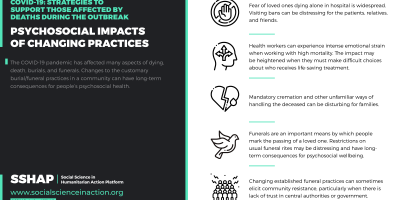
Infographic
Strategies To Support Those Affected By Deaths During The COVID-19 Outbreak
Changes to customary burial and funeral practices can have long-term consequences for people's psychosocial health.
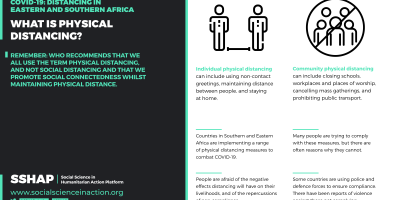
Infographic
Distancing In Eastern And Southern Africa
Why is physical distancing a challenge in Eastern and Southern Africa in the context of COVID-19?
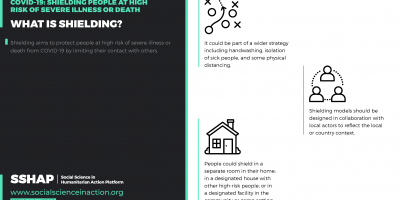
Infographic
Shielding People At High Risk Of Severe Illness Or Death
Protecting people at high risk by limiting their contact with others during the COVID-19 outbreak.
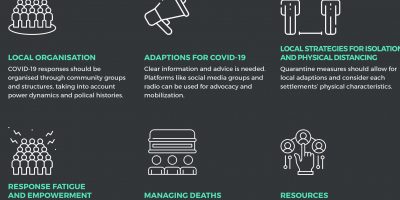
Infographic
Informal Urban Settlements and COVID-19
The potential burdens of COVID-19 in low- and middle-income cities are concerning.
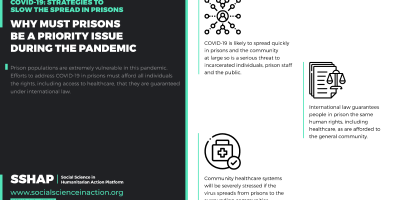
Infographic
COVID-19: Strategies To Slow The Spread In Prisons
Prison populations are extremely vulnerable in this pandemic.
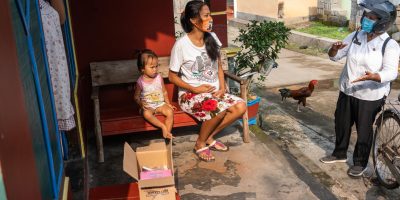
Evidence review
Considerations for Home and Community-Based Care for COVID-19 frptes
Why home care is important, and an overview of existing guidance and models, with an emphasis on low-and-middle-income countries (LMICs).
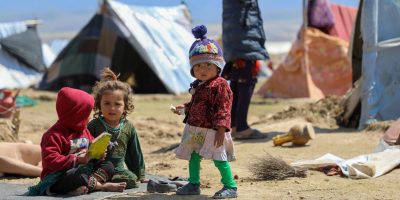
Briefing
Interim Guidance on Public Health and Social Measures for COVID-19 Preparedness and Response Operations in Low Capacity and Humanitarian Settings
This Interim Guidance outlines how key public health and social measures needed to reduce the risk of COVID-19 spread and the impact of the disease can be adapted for use in low capacity and humanitarian settings. The recommendations outlined here…
Briefing
What social sciences researchers working in humanitarian contexts (sub-Saharan Africa) should be asking in COVID-19 and why
A summary of suggested key social science research questions and their rationale to support and inform operational field research and response programming in sub-Saharan Africa.
Briefing
Gender Inclusiveness in COVID-19 Humanitarian Response Operations, Evidence from Social Sciences Outbreak Research
This brief was developed for actors working “on the ground” in outbreak response in humanitarian programmes and contexts. It focuses on the importance, reasons and recommendations for how to ensure gender inclusivity in outbreak response, based on evidence and lessons…
Briefing
Humanitarian Programme Recommendations for COVID-19 Based on Social Sciences Evidence from the DRC Ebola Outbreak Response
This brief was developed for actors working “on the ground” in outbreak response in humanitarian programmes and contexts. It addresses recurrent programme recommendations, including strategies, interventions and activities, which resulted from social sciences analyses conducted by the CASS during the…
Briefing
Social Sciences Evidence on Barriers to Healthcare Seeking During the DRC Ebola Outbreak
This brief was developed for actors working “on the ground” in humanitarian response programmes. It focuses on the importance, reasons and recommendations for minimising barriers to healthcare seeking in outbreak settings based on social sciences evidence from CASS studies undertaken during the Ebola…
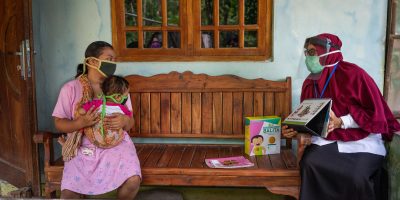
Briefing
COVID-19 Management in Marginalised Populations in Southeast Asia
Key considerations focusing on transnational migrants, informal workers, and people living in informal settlements.


